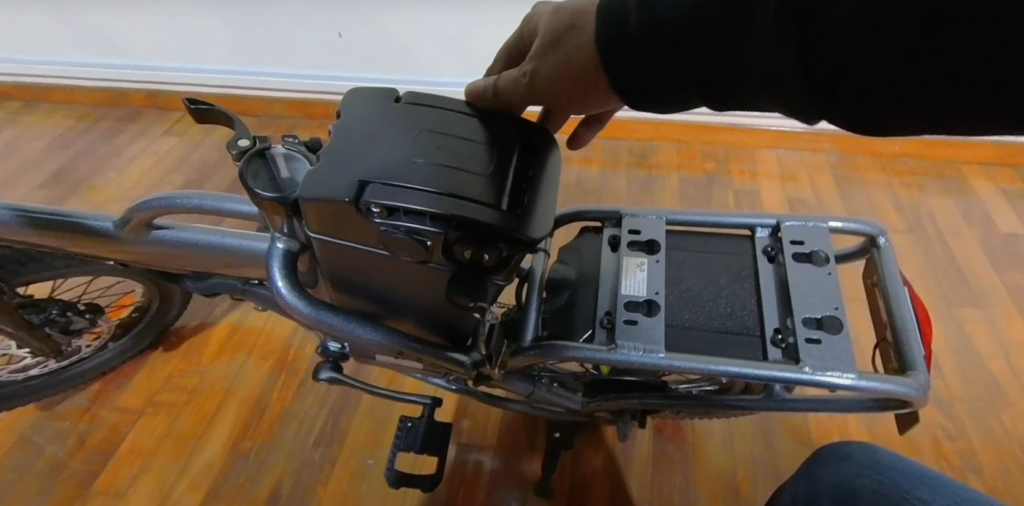In the world of electric biking, the longevity and efficiency of your ebike battery are crucial for maintaining that thrilling ride you cherish. As ebike battery age, many owners ponder a common question: can ebike batteries be repaired? Ebike batteries can often be rebuilt, but replacement is recommended beyond a certain performance threshold. It’s important to understand that although older cells may still hold a charge, mixing new and old cells can lead to uneven stress distribution, potentially compromising your battery’s longevity. Let’s explore the ins and outs of ebike battery repair and what you need to consider before embarking on this journey.
Understanding Ebike Batteries: Components and Functionality
Ebike batteries are essential components that power electric bicycles, enabling them to achieve remarkable speeds and distances. Typically, these batteries consist of multiple cells, often lithium-ion, which work together to store and release energy efficiently. Understanding the composition and functionality of ebike battery is crucial for both ebike maintenance and troubleshooting. As these batteries age, they may still hold a charge; however, their performance can degrade due to varying reasons like cell imbalance or diminished capacity. When considering battery health, it’s essential to recognize that most ebike battery can be rebuilt or repaired, especially if the issue lies with a few aged cells.
However, it is generally advised to replace the entire battery below a certain threshold of performance. Replacing only some cells can lead to uneven performance since the newer cells may experience additional stress while trying to work in tandem with older cells, potentially shortening their lifespan. Thus, comprehending how ebike battery function is vital for optimizing performance and ensuring a reliable riding experience.
Signs Your Ebike Battery May Need Repair
Key signs your ebike battery may need ebike repair include a noticeable decrease in range and more frequent charging, indicating potential cell degradation. Additionally, if your battery is taking excessively long to charge or exhibits unusual heat during the charging process, these could also be telltale signs of underlying issues that require attention. Moreover, physical damage or swelling of the battery pack is another critical sign that should not be ignored. This can compromise the safety and functionality of your ebike battery, making it necessary to seek professional evaluation and potential repair.
While ebike battery can often be rebuilt, if the wear and tear surpass a certain threshold, replacement may be the most prudent option. If you notice any of these warning signs, it’s important to consult a technician who can assess the health of your ebike battery and determine the best course of action to revive your ride.

The Process of Rebuilding Ebike Batteries
Rebuilding ebike battery can be an effective way to extend the lifespan of your electric bike while saving on costs. The process involves removing the old battery cells and replacing them with new ones. While many ebike batteries can be rebuilt, it’s essential to consider the condition of the entire battery pack. As cells age, their overall capacity to hold charge diminishes, and replacing just a few cells may not be sufficient if the rest of the pack has significantly degraded. It is often advised to replace the entire battery once it drops below a certain threshold to ensure optimal performance and reliability.
When embarking on the rebuilding process, it’s crucial to select high-quality replacement cells that can handle the demands of your ebike. New cells may experience additional stress when paired with older cells that have higher resistance. This can lead to uneven performance and may ultimately shorten the lifespan of the new cells. Therefore, consulting with a professional or utilizing a reputable rebuilding service can help ensure that your ebike battery is effectively refurbished, providing you with a smoother and safer riding experience for years to come.
When to Replace Your Ebike Battery
Knowing when to replace your ebike battery is crucial to maintaining the performance of your electric ride. Generally, ebike battery can be rebuilt, but this is only advisable up to a certain point. If your battery is showing signs of severe capacity loss, such as significantly reduced range or sluggish acceleration, it’s a good indication that replacement is necessary. Over time, even if some cells are still holding a charge, the overall efficiency of the battery degrades, leading to an imbalance between old and new cells. New cells may suffer undue stress when paired with aging cells, diminishing the overall performance of your ebike.
Furthermore, frequent cycling of the battery below a certain voltage threshold can exacerbate wear and tear on older cells, reducing their lifespan further. It’s essential to monitor your battery’s voltage and performance regularly. If you notice irregularities such as swelling or overheating, it’s time to consider a replacement. Taking these precautions not only extends the longevity of your ebike but also ensures a safe and enjoyable riding experience by maintaining reliable power delivery and efficiency.
Potential Risks of Mixing Old and New Battery Cells
When considering the possibility of repairing your ebike battery by mixing old and new cells, it’s essential to understand the risks involved. While rebuilt ebike battery can provide a temporary solution, integrating new cells with older ones can lead to performance issues. Mixing new and old cells can compromise consistent power delivery and lead to uneven stress, affecting battery longevity. As a result, newly added cells may experience increased stress, which can shorten their lifespan and lead to further degradation of the entire battery pack. This potential mismatch between old and new cells can create an imbalance, making it harder for the battery management system to optimally control the pack’s charge and discharge cycles.
Moreover, if the new cells are more powerful or have different characteristics than the old cells, this inconsistency can exacerbate the problem. The newer cells may try to provide more output, but if the older cells cannot handle this increased demand, they could overheat or even cause a failure in the battery pack. Therefore, while mixing old and new cells might seem like a viable option for reviving your ebike, it carries significant risks that could ultimately lead to complications. A careful evaluation of the battery’s overall health and proper professional advice should be sought before proceeding with any cell replacement to ensure a safe and effective solution.
Cost Considerations for Repairing vs. Replacing
When contemplating the ebike maintenance, one significant factor comes into play: the cost considerations for repairing versus replacing the battery. Generally, ebike battery can be rebuilt, and if the damage is minor, the repair process could save you some money while extending the lifespan of the battery. However, beyond a certain threshold of degradation or damage, replacing the entire battery might be the more prudent choice. While repairs can often be less initially costly, it’s essential to factor in the long-term implications, especially as ebike battery age and the performance of rebuilt batteries may decline due to mixed cells.
Additionally, when considering repairs, remember that older cells can still retain a charge, but replacing certain cells with new ones creates a discrepancy in stress on the battery. This can lead to uneven wear and potentially shorten the lifespan of the newly added cells. New cells might take on more stress compared to their older counterparts, making the repair a potentially short-term solution rather than a long-lasting fix. Therefore, while the initial cost may tempt you to repair, evaluating the longevity and performance implications can lead you to make a more informed decision about whether to repair or entirely replace your ebike battery.
DIY vs. Professional Ebike Battery Repairs
When it comes to repairing ebike battery, riders often face a choice between DIY solutions and professional services. While DIY repairs save money, professional services offer expertise and may ensure better results. Many riders find tutorials and guides online that help them understand the rebuilding process, which generally involves replacing individual cells within the battery pack. However, it’s important to note that while some batteries can be successfully rebuilt, there is a threshold beneath which replacement is advisable. If cells are significantly aged or damaged, attempting a DIY fix may not yield the best results.
Additionally, mixing new cells with older ones can lead to uneven stress distribution, potentially reducing ebike battery life and performance over time. Experts typically have access to specialized tools and knowledge that ensure a more thorough and efficient repair process. They can accurately assess the battery’s condition and determine if it’s more cost-effective to rebuild or replace the unit entirely. Furthermore, professional services often provide warranties, giving riders peace of mind about the work performed. Ultimately, whether opting for a DIY approach or entrusting a professional, understanding the state of your ebike battery is crucial for its longevity and performance.

Best Practices for Maintaining Your Ebike Battery
Maintaining your ebike battery is crucial for ensuring longevity and optimal performance. Regularly checking the battery’s connections and cleaning them can prevent corrosion and ensure efficient energy transfer. It’s also essential to charge the battery according to the manufacturer’s guidelines, avoiding overcharging or letting it drain completely, as both can significantly reduce the battery’s lifespan. Keeping the battery in a moderate temperature environment helps avoid stress on the cells, as extreme heat or cold can lead to reduced performance and damage. Investing in a quality battery management system can aid in monitoring the health of your battery, providing data that can guide your ebike maintenance practices.
I think the article highlights a crucial aspect of ebike ownership – maintenance. Ignoring the health of the battery can lead to costly repairs or even a replacement.
Hi Eric, completely agree with you! Ignoring ebike battery maintenance can indeed lead to costly repairs or replacement. Rebuilding ebike batteries is a great way to prolong its lifespan and performance, and our team at Eko Life is always happy to help with professional evaluations and potential repairs. If you have any questions or concerns about your ebike battery, feel free to reach out to us at [email protected] or call us at +65 6589 8877. We’re here to help! By the way, our next blog post is coming soon and it will be all about DIY ebike battery maintenance, so be sure to stay tuned!.
Diving into the details of ebike battery repair and maintenance can be overwhelming, but it’s good to know that there are resources available for DIY repairs.
We completely understand how overwhelming the process of ebike battery repair and maintenance can be! At Eko Life, we’re more than happy to help you navigate through the process. Our team of experts is equipped with the necessary knowledge and skills to provide you with the best possible guidance and support. Whether you’re looking for DIY tips or professional repairs, we’re here to help. Feel free to reach out to us at [email protected] or +65 6589 8877, and let’s work together to keep you riding smoothly and safely!
I like how the article weighs the pros and cons of repairing versus replacing the ebike battery – it’s genuinely helpful for those considering professional repairs
Great-point, Khairiah Tan! At Eko Life, we understand the importance of choosing the right option for your ebike battery. Our team is dedicated to providing top-notch professional repairs that ensure the longevity and performance of your battery. If you’re considering repairs, feel free to contact us at [email protected] or phone us at +65 6589 8877 to schedule an appointment. We’d be happy to assess your battery and provide a personalized solution.